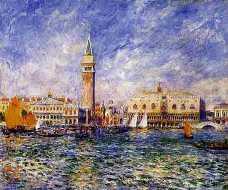Palace
Origin
The word palace comes from Old French palais (imperial residence), from Latin Palātium, the name of one of the seven hills of Rome. The original "palaces" on the Palatine Hill were the seat of the imperial power while the "capitol" on the Capitoline Hill was the religious nucleus of Rome. Long after the city grew to the seven hills, the Palatine remained a desirable residential area. Emperor Caesar Augustus lived there in a purposely modest house only set apart from his neighbors by the two laurel trees planted to flank the front door as a sign of triumph granted by the Senate. His descendants, especially Nero, with his "Golden House" enlarged the house and grounds over and over until it took up the hill top. The word Palātium came to mean the residence of the emperor rather than the neighbourhood on top of the hill.
"Palace" meaning "government" can be recognized in a remark of Paul the Deacon, writing ca 790 and describing events of the 660s: "When Grimuald set out for Beneventum, he entrusted his palace to Lupus" (Historia Langobardorum, V.xvii). At the same time Charlemagne was consciously reviving the Roman expression in his "palace" at Aachen, of which only his chapel remains. In the 9th century the "palace" indicated the housing of the government too, and the constantly-traveling Charlemagne built fourteen. In the early Middle Ages, the Palas remained the seat of government in some German cities. In the Holy Roman Empire the powerful independent Electors came to be housed in palaces (Paläste). This has been used as evidence that power was widely distributed in the Empire, as in more centralized monarchies, only the monarch's residence would be a palace.
In modern times, the term has been applied by archaeologists and historians to large structures that housed combined ruler, court and bureaucracy in "palace culturtes". In informal usage, a "palace" can be extended to a grand residence of any kind.
Definitions
- b chiefly British : the official residence of an archbishop or bishop
- 2a : a large stately house
- b : a large public building
- c : a highly decorated place for public amusement or refreshment <a movie palace
Description
A palace is a grand residence, especially a royal residence or the home of a head of state or some other high-ranking dignitary, such as a bishop or archbishop. The word itself is derived from the Latin name Palātium, for Palatine Hill, one of the seven hills in Rome. In many parts of Europe, the term is also applied to ambitious private mansions of the aristocracy. Many historic palaces are now put to other uses such as parliaments, museums, hotels or office buildings. The word is also sometimes used to describe a lavishly ornate building used for public entertainment or exhibitions.
